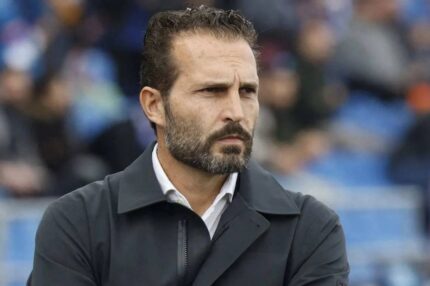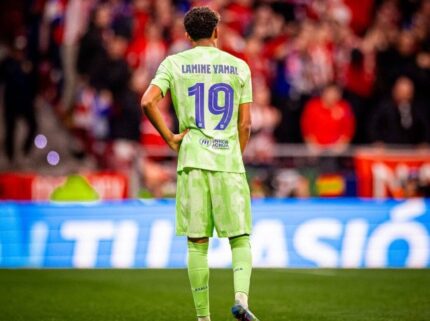Valencia CF announced on Monday the dismissal of head coach Rubén Baraja following a string of poor performances that have left the club languishing in 19th place in La Liga. With only 12 points from 24 matches, including just two victories, Valencia finds itself in a perilous position in the relegation zone.
The club released an official statement highlighting that the decision to part ways with Rubén Baraja was “very difficult” but necessary to “reverse the situation and achieve better results.” Rubén Baraja, a former Valencia player and club legend, took over as coach in February 2023, rescuing the team from relegation on the final day of the previous season. Despite this success, the club’s ongoing struggles have made his position untenable, prompting the board to take decisive action.
High Hopes Turned to Disappointment
Rubén Baraja’s initial appointment brought optimism, as he managed to stabilize the team and avoid relegation during a tumultuous 2022/23 campaign. This achievement earned him a two-year contract extension, with hopes of rebuilding Valencia into a competitive force in La Liga.
The start of the 2023/24 season seemed promising, with Valencia briefly flirting with European qualification. However, a late-season collapse saw the team slump into poor form, a trend that continued into the current campaign. The once-promising resurgence has now turned into a nightmare, with Rubén Baraja acknowledging the “indefensible” results while maintaining his belief that he could still turn the situation around.
Club Leadership’s Stance and Decision
The decision to sack Rubén Baraja comes just days after club president LayHoon Chan publicly stated that there was no directive from majority shareholder Peter Lim regarding the coach’s future. Chan had expressed the club’s support for Baraja, emphasizing his legendary status and his previous success in saving Valencia from relegation.
However, the continued poor performances left the board with little choice but to act. Valencia expressed gratitude to Rubén Baraja for his “passion, dedication, and commitment” during his tenure and reiterated his status as “one of the principal legends in the history of Valencia.” The club’s leadership is now tasked with finding a replacement capable of steering the team out of the relegation zone.
A Difficult Chapter in Valencia’s History
Rubén Baraja departs Valencia with the unfortunate distinction of being statistically the worst-performing manager among the 30 coaches with the most matches in the club’s history. Despite this, his legacy as a player and his efforts to save the club last season remain part of his enduring reputation.
Valencia now faces a critical period as it fights to avoid relegation for the first time in decades. The club will need to rally behind a new manager and rediscover its winning mentality to survive in Spain’s top flight. As the team seeks to overcome its struggles, fans and stakeholders will be watching closely to see if this bold decision yields the desired results.
Baraja: A Valencia Legend On and Off the Field
Baraja’s legacy at Valencia extends beyond his managerial stint. During his playing career, spanning a decade from 2000 to 2010, he became one of the club’s most iconic figures. As a midfielder, he helped Valencia secure two La Liga titles, the UEFA Cup, and other domestic trophies, cementing his status as a club legend.
The former Spanish international, who represented his country at the 2002 FIFA World Cup, brought his competitive spirit and deep understanding of Valencia’s ethos to his managerial role. While his tenure as head coach ultimately fell short, fans and pundits alike acknowledge the dedication and passion he displayed throughout his time at the helm.
What’s Next for Valencia?
Valencia now faces the daunting task of finding a replacement capable of steering the team out of its current crisis. The club’s next match against Real Madrid on January 3 will be a litmus test for the players’ resilience and the interim management’s ability to deliver under pressure. With the January transfer window around the corner, the club may also look to bolster its squad to improve its chances of survival.
For Baraja, his managerial journey continues, having previously coached teams such as Elche, Rayo Vallecano, Sporting Gijon, Tenerife, and Zaragoza. While his stint at Valencia may have ended prematurely, his status as a club legend remains intact, and he leaves with the support of many fans who hope to see him succeed elsewhere.
Valencia’s struggles this season underscore the challenges of balancing loyalty and performance, and the club’s decision to part ways with Baraja reflects a commitment to safeguarding its future in Spain’s top flight.














